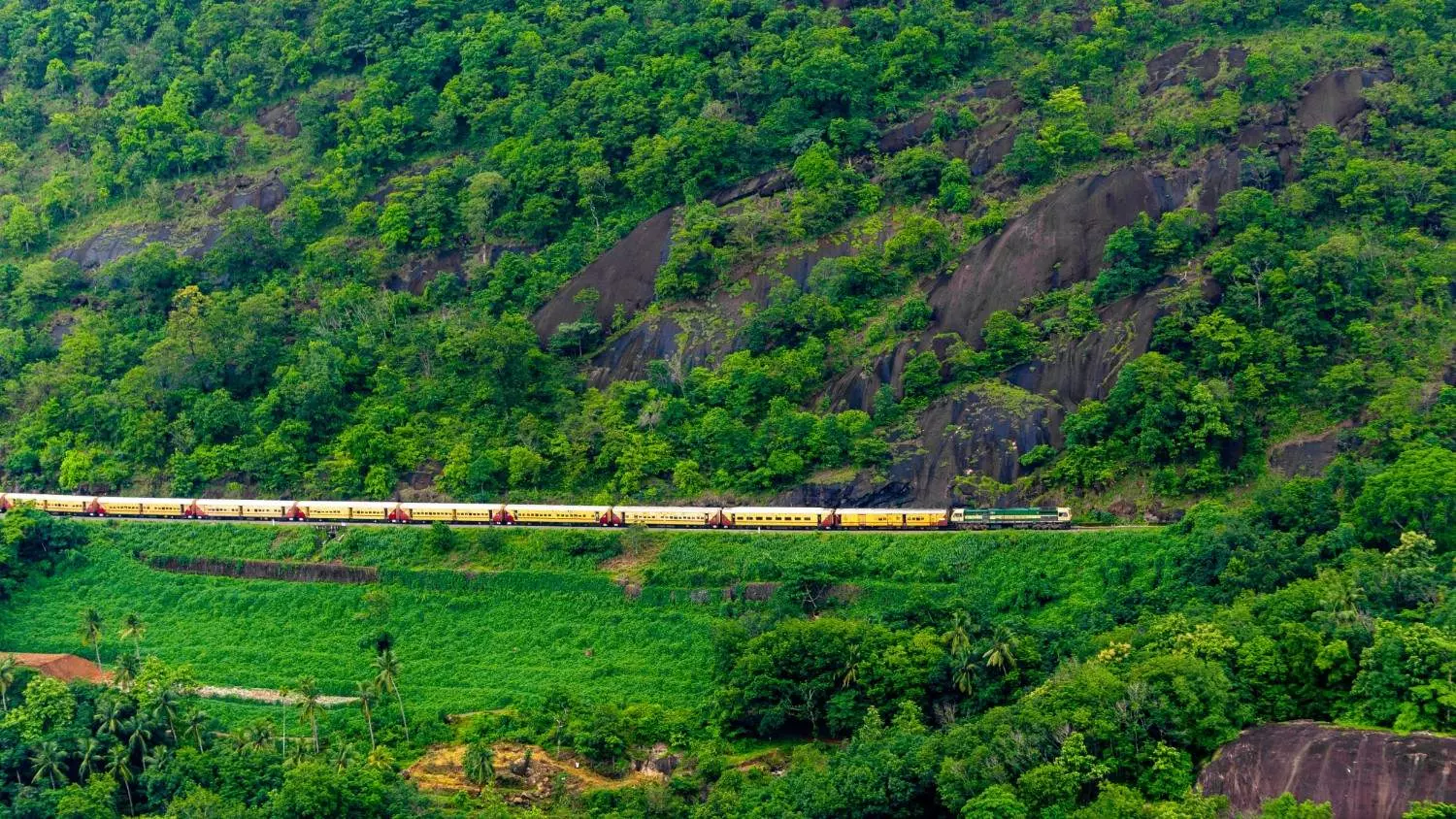
RTI reveals snail-paced modernisation of critical safety systems in Southern Railway
Key technologies such as Electronic Interlocking (EI), Automatic Block Signalling (ABS), Train Protection Warning System (TPWS), and the indigenous anti-collision system Kavach remain largely unimplemented

Alarming deficiencies in passenger safety across the Southern Railway network have come to light through an RTI response, highlighting the painfully slow implementation of essential modernisation projects designed to prevent accidents and reduce human error.
Also read: Railway probe report blames crew for fatal crash in Chhattisgarh
The RTI query, filed by Chennai-based Right to Information (RTI) activist Dayanandan Krishnan, has forced Southern Railway to admit that key technologies such as Electronic Interlocking (EI), Automatic Block Signalling (ABS), Train Protection Warning System (TPWS), and the indigenous anti-collision system Kavach remain largely unimplemented across vast stretches of the zone.
No EI system at 242 stations
Electronic Interlocking (EI): Only half the stations of the 492 stations in the Southern Railway are covered. EI – a system that automatically prevents trains from moving unless level-crossing gates are fully closed and signals are safe – has been installed at just 250 stations. The remaining 242 stations continue to rely on outdated manual or mechanical systems. In divisions like Madurai, gate operations and signal coordination at non-EI level crossings are entirely manual, placing the lives of passengers, motorists, and gatekeepers at the mercy of human vigilance alone. The cost of EI installation is steep, ranging from Rs 9.76 crore for a single-line, two-track setup to Rs 14.48 crore for double-line, five-track configurations, but critics argue the price of inaction is far higher.
Also read: New Ernakulam-Bengaluru Vande Bharat starts; controversy erupts over RSS song
Automatic Block Signalling (ABS): More than 84 per cent is still pending. Southern Railway requires ABS over 5,084 km to maintain safe distances between trains automatically. To date, only 495.73 km have been completed, leaving more than 84 per cent of the network dependent on antiquated manual signalling methods that heighten the risk of collisions.
Train Protection Warning System (TPWS): Limited to two suburban sections, TPWS, which automatically applies brakes if a train overspeeds or jumps a red signal, is operational only on the Chennai-Katpadi and Chennai-Arakkonam sections. The rest of the zone remains uncovered.
The much-touted indigenous Kavach anti-collision system is sanctioned for 5,084 km in Southern Railway. Work is progressing on just 1,984 km, while the remaining 3,100 km has not even commenced. At an estimated cost of Rs 0.64 crore per km, the pace of rollout has drawn sharp criticism.
Madurai MP slams Centre
Madurai MP and CPI(M) leader Su Venkatesan accused the Central government of prioritising high-profile projects for political mileage while starving core safety and infrastructure upgrades of funds.
Speaking to The Federal, Venkatesan said, "The Centre announces flashy schemes for votes but shows no resolve on basic infrastructure or passenger safety. Railway officers themselves say it is a miracle that trains are running without major accidents under these conditions."
He noted that the long-dormant Railway Advisory Committee is finally set to meet in Delhi next Tuesday after persistent demands, where funding for Tamil Nadu and Southern Railway's urgent safety works will top the agenda.
Marimuthu, co-convenor of the Tamil Nadu Rail Passengers' Right Tribune, strongly criticised the railway administration's negligent attitude in response to the RTI revelations.
Speaking to The Federal, he pointed out that Southern Railway has achieved the top position among all zones in India in generating revenue through passenger fares. The zone, comprising six divisions including Chennai, has 727 railway stations. From April to August this year, a total of 32.15 crore passengers travelled on Southern Railway trains, a 6.58 per cent increase compared to the same period last year. During the same five-month period (April-August 2025), Southern Railway earned a record Rs 3,273 crore from passenger fares alone, registering a 4.71 per cent growth over the previous year and once again securing the number one spot nationally in passenger revenue.
Marimuthu emphasised that despite this impressive financial performance and massive passenger volume, the railway administration must immediately prioritise passenger safety and accelerate the implementation of critical safety systems.
The Federal sought clarifications from Southern Railway authorities on the RTI disclosures. No response has been received at the time of publishing; any update will be added.

